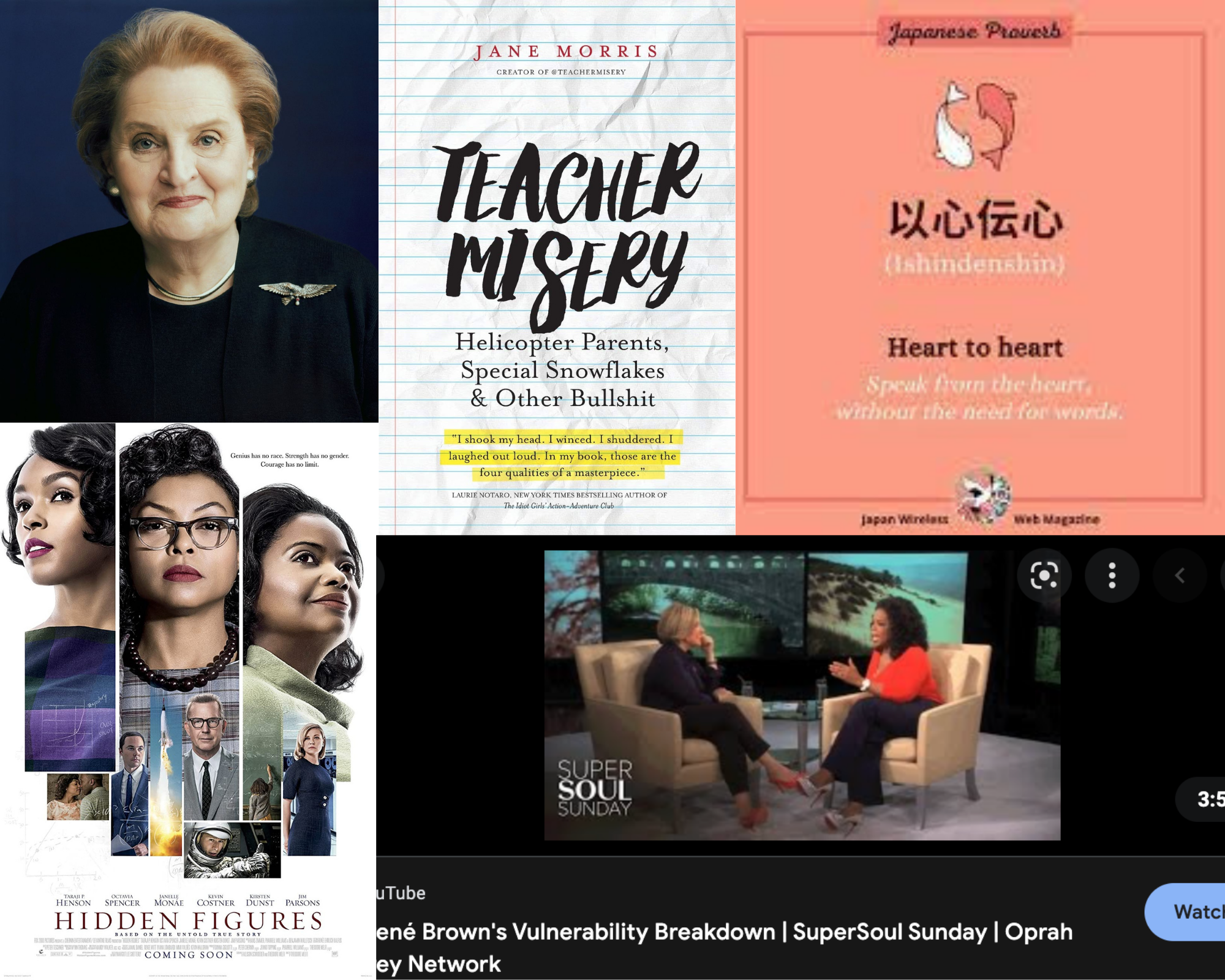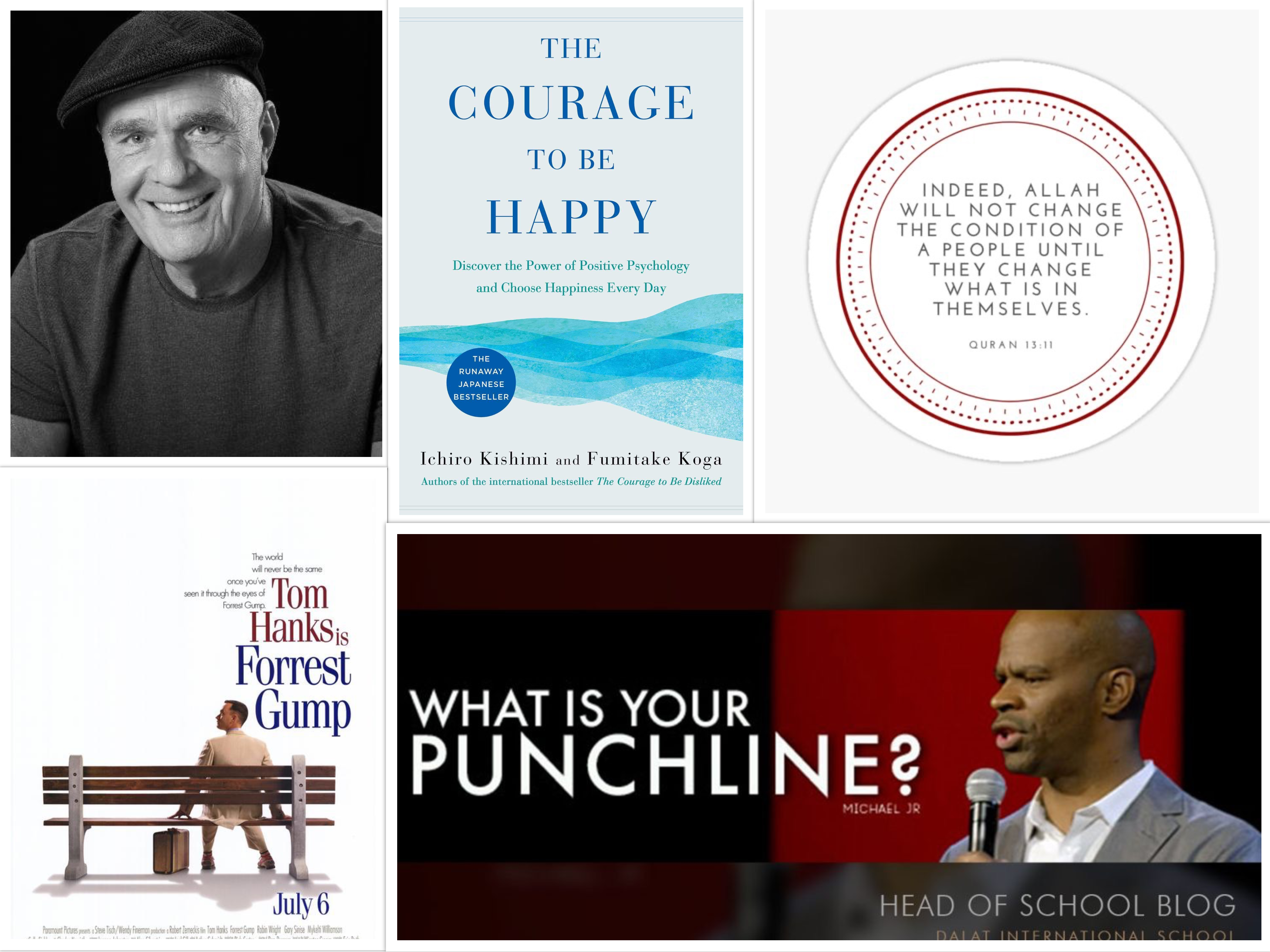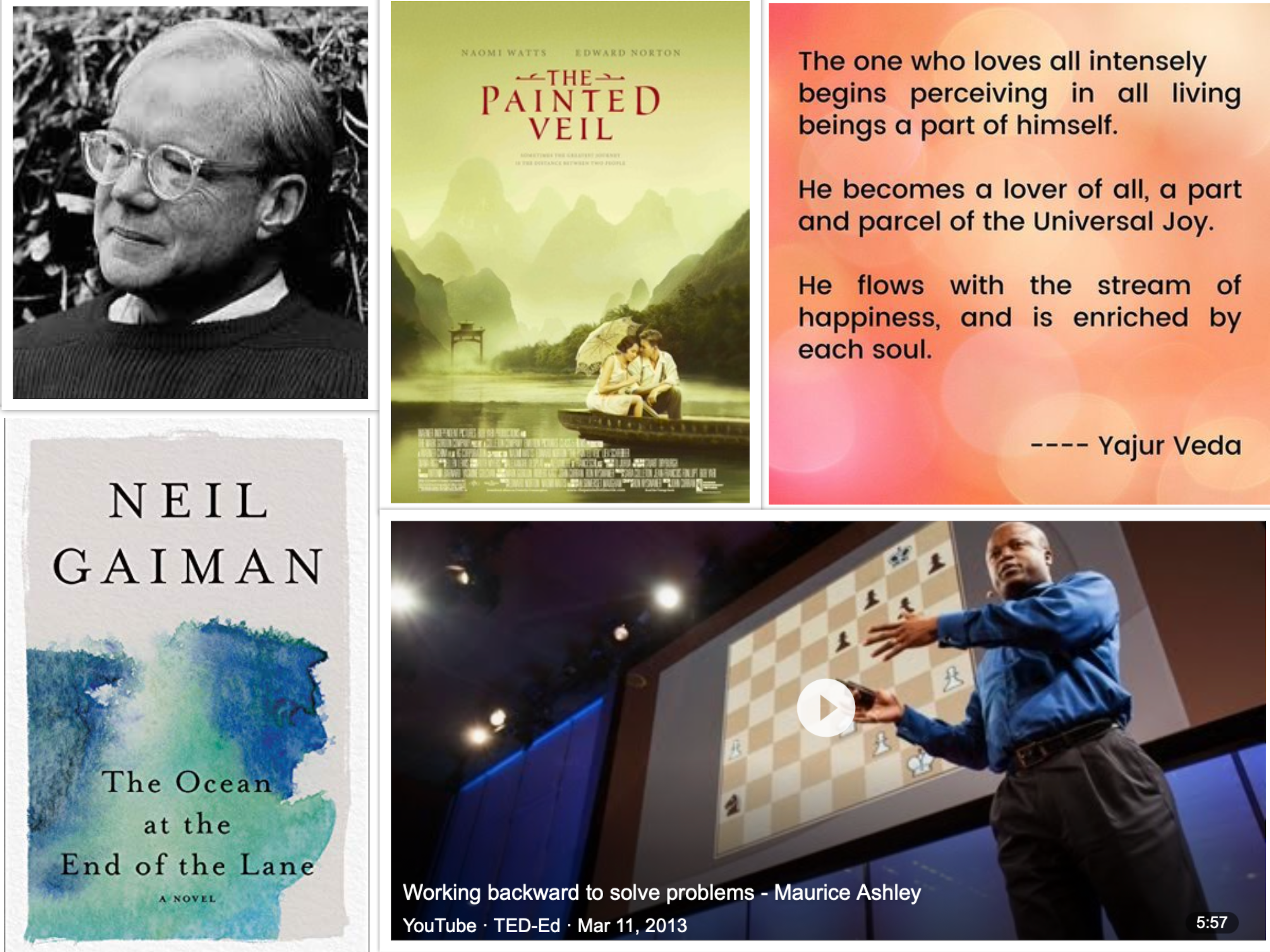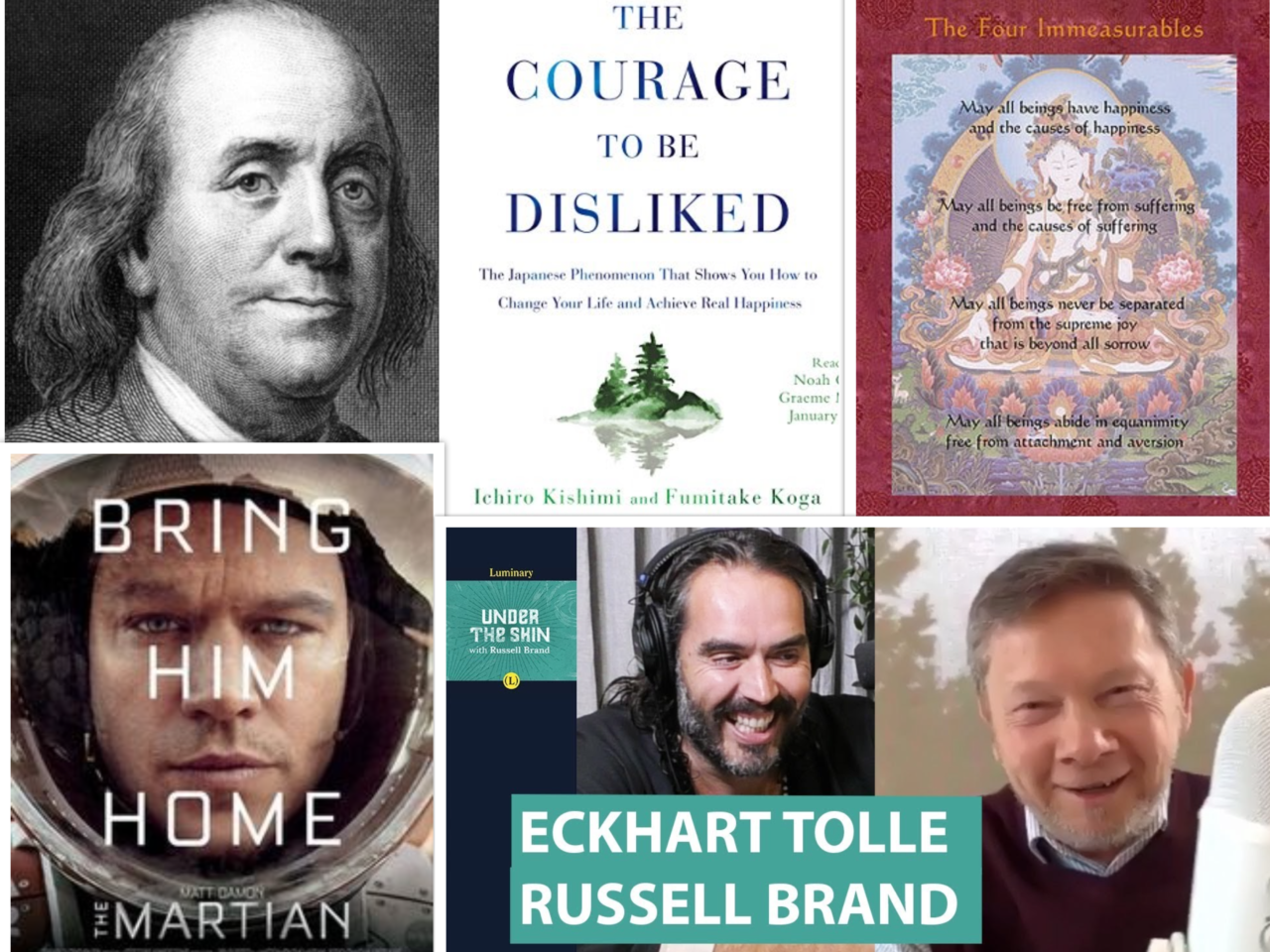Sunday Supplement #59 (June 26th, 2022)
Below is another Sunday Supplement with a quote worth sharing, a book worth reading, a movie worth watching, brainfood worth consuming, and a spiritual passage worth pondering.
I hope you take something away from these recommendations that enriches your week ahead!
Quote of the Week:
“It took me a long time to develop a voice, and now that I have it, I am not going to be silent.”
– Madeleine Albright
Book of the Week:
Teacher Misery – Jane Morris
When I decided to pursue teaching, I was given Teacher Misery by one of the teachers I worked alongside.
The book compiles short stories, emails (from students, parents, and administrators), and other essays that paint the ridiculous and sometimes disheartening experience of teachers.
As I read the book, I could see and believe many of the experiences described by Morris and other teachers who anonymously contributed to the book.
I think the book can be outlandish at times and doesn’t take the other party’s perspective in many instances, but I believe the book is a warning for those who think teaching is a straightforward profession or calling.
Jane Morris is a pen-name for the teacher that authored the book. She has worked in education for decades and provides resources on her website to aid all teachers.
The book is an interesting read but not one I’d describe as pleasant. I recommend it to anyone interested or looking to enter the teaching profession.
For a more supportive guide for teachers with some phenomenal advice, I’d recommend The Courage to Be Happy, which I discuss in Sunday Supplement #22.
Movie of the Week:
The film Hidden Figures is based on the non-fiction book of the same name by Margot Lee Shetterly about African American female mathematicians who worked at NASA.
Hidden Figures showed the segregation of race and sex at NASA and how Katherine Johnson, Mary Jackson, and Dorothy Vaughan had to overcome both.
Taraji P. Henson played Johnson, Janelle Monáe played Jackson, and Octavia Spencer played Vaughan. Each was brilliant in their roles, and Spencer received an Oscar nomination for her portrayal.
The movie went on to show how each woman played a vital role at NASA during the Space Race with the USSR.
One of the strikes against the movie was the argument of a white savior narrative from Kevin Costner’s character, director of the Space Task Group Al Harrison.
I don’t think the moment referred to in the arguments was shot well, but it didn’t take away from the overall experience of the film for me.
The movie was nominated for Best Picture, and writers Allison Schroeder and Theodore Melfi were nominated for Best Adapted Screenplay at the Academy Awards.
Brainfood of the Week:
Dr. Bené Brown’s Vulnerability Breakdown | SuperSoul Sunday | OWN
The video recounts one of Brown’s experiences after her TED Talk, “The Power of Vulnerability,” went viral.
One night Brown looked at the comments under one of her videos and found some scathing anonymous feedback.
While getting her mind off the internet trolls, she came across Theodore Roosevelt’s “Man in the Arena” quote.
The quote became a catalyst for Brown to move forward on her path. It represented everything she learned about vulnerability in her research—showing up and being seen.
Brown wanted to be courageous and daring like the person in the quote and committed to only taking feedback from people who put themselves in the arena.
Brené Brown went on to be a bestselling author, an expert on shame, vulnerability, and empathy, and has helped others through her podcasts, talks, and appearances.
I’ve featured Oprah Winfrey and Brené Brown in multiple previous Sunday Supplements. Click their tags at the bottom of the page to see other posts with their content highlighted.
Closing Spiritual Passage:
“Heart to heart.” (以心伝心)
– Japanese Proverb
This Japanese proverb “heart to heart” means to share your true feelings to connect with another person.
When I look at passages and quotes, I try to think about them in different ways. With this one, I believe it also means that you can only have a deeper connection with someone if you share your true feelings.
For me, to share your true feelings or to be able to achieve “heart to heart,” you must be willing to be vulnerable.
When opening yourself up to be vulnerable, there can be rejection. However, I find there is great power when being vulnerable. Regardless of the outcome, you know that you gave 100 percent.
I think it’s vital to let yourself be seen and heard by yourself as much as others. This Japanese proverb reminds me of how important it is to open your heart for genuine connection.
See and express yourself fully, and have a blessed week ahead!
4 Comments


